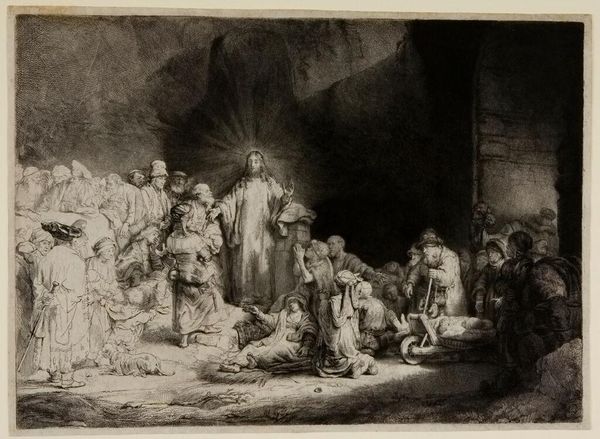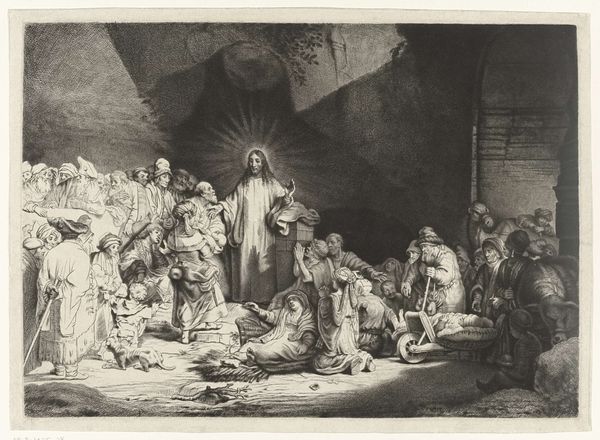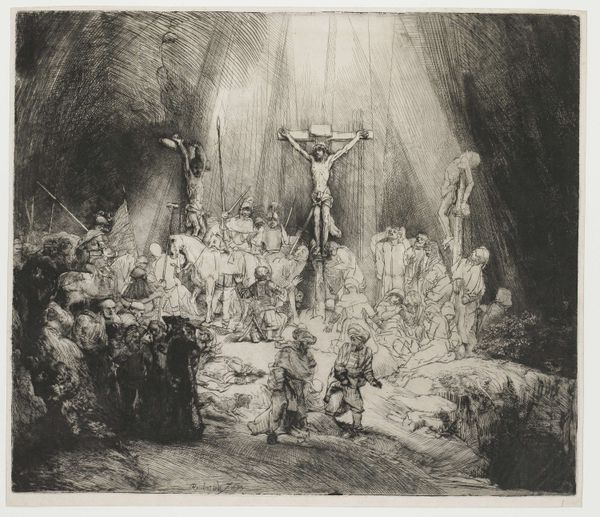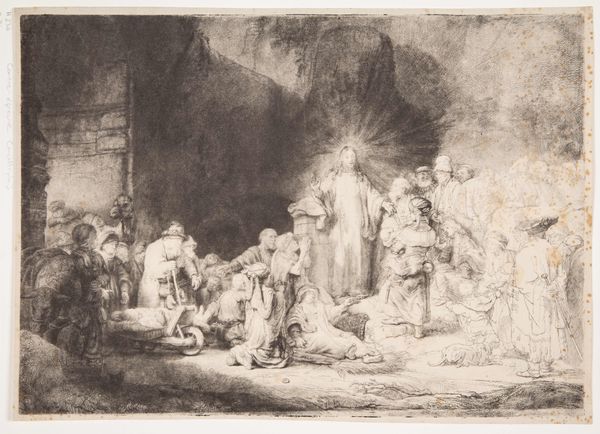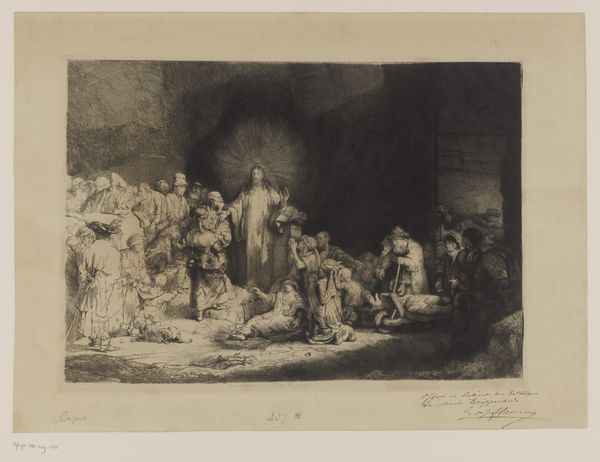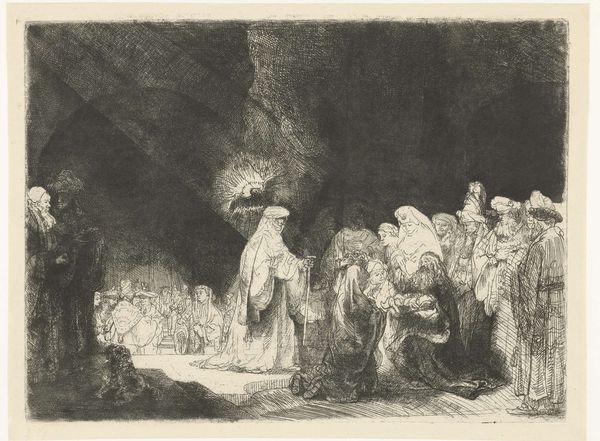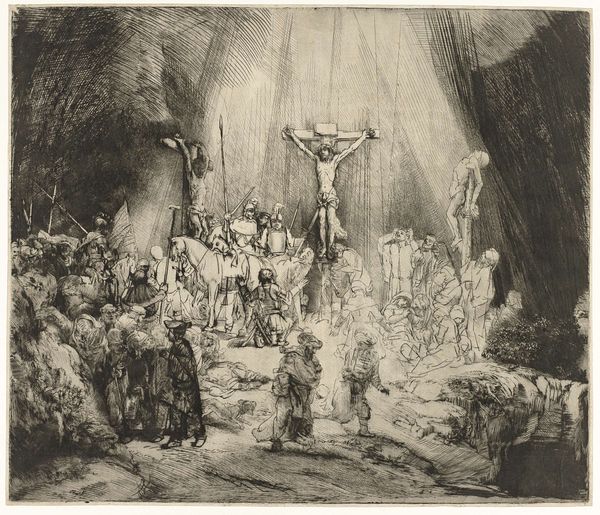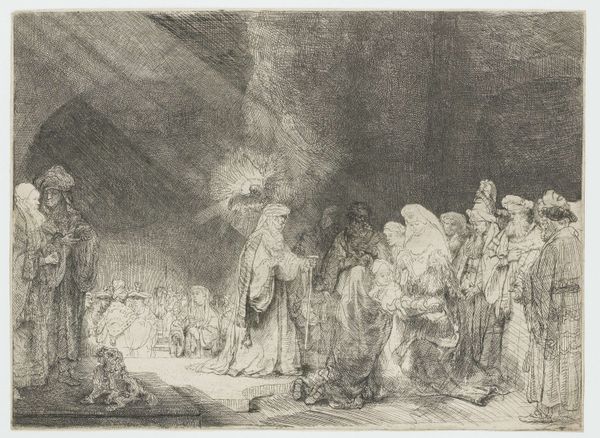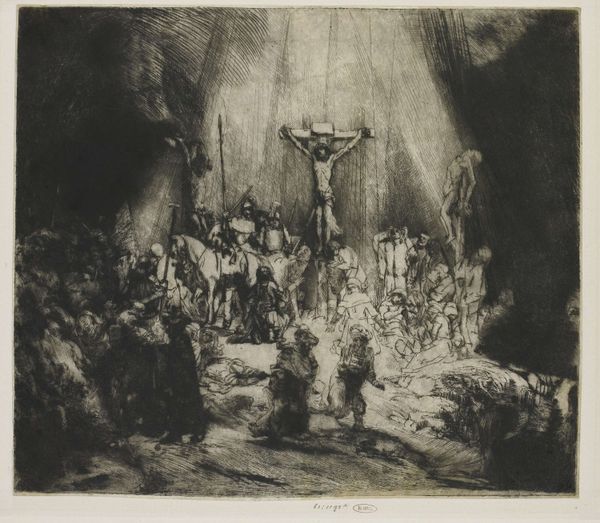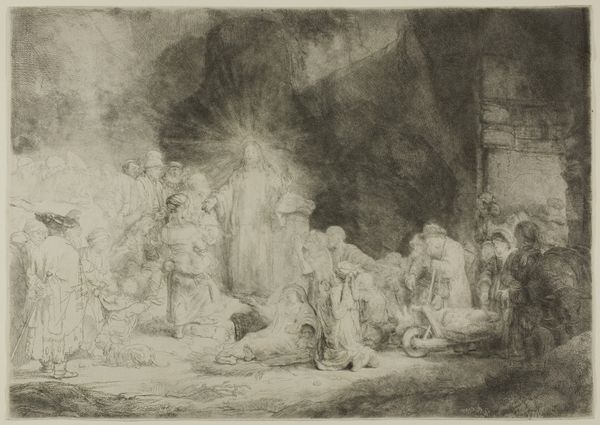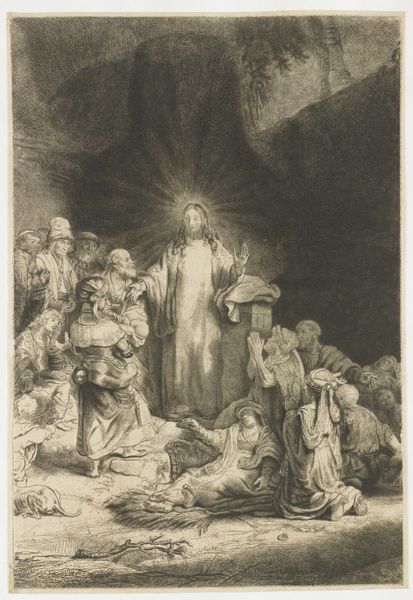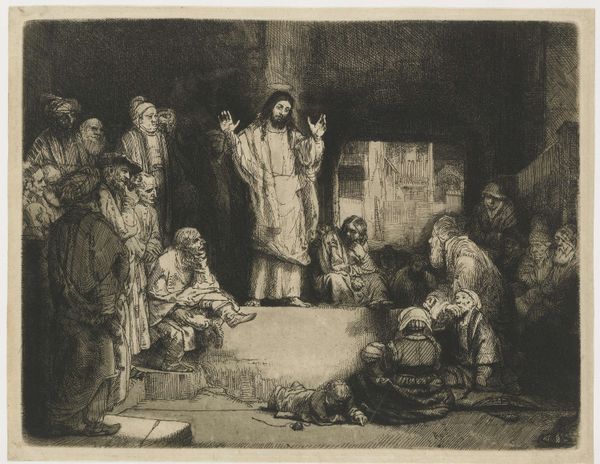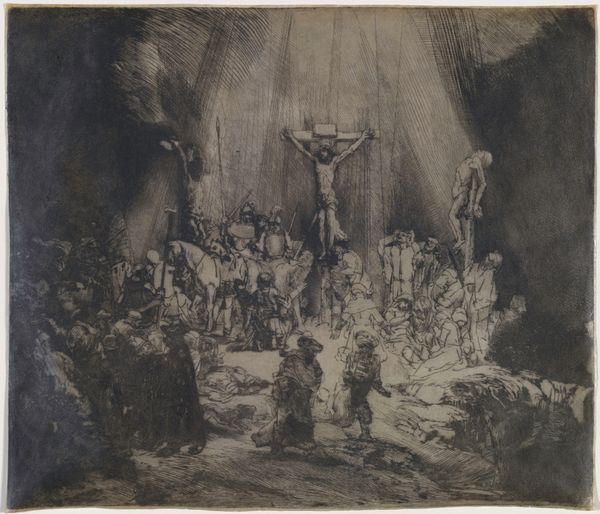
drawing, print, etching, paper, ink
#
drawing
#
narrative-art
#
baroque
#
dutch-golden-age
# print
#
etching
#
paper
#
ink
#
history-painting
Dimensions: 276 × 395 mm (image/plate); 282 × 402 mm (sheet)
Copyright: Public Domain
Editor: This is Rembrandt van Rijn’s "The Hundred Guilder Print," and it's just teeming with people. The use of light really draws me in; what symbols do you see at play here? Curator: Light, indeed! Notice how it radiates from Christ, illuminating not just him, but also those who seek him. It’s a potent symbol of divine grace, of enlightenment offered to a suffering humanity. The darkness Rembrandt employs is equally important. Editor: How so? Curator: The darkness represents the earthly realm, human ignorance and pain. Consider those figures cloaked in shadow; their expressions, even obscured, suggest a deep yearning, a reaching out for the light. What emotional connections do you draw from the use of Chiaroscuro in the scene? Editor: The suffering on the foreground feels highlighted by the shadow in the background! Like the whole image points toward redemption! Curator: Exactly. Consider the woman kneeling before Christ. Her posture isn’t just one of supplication; it echoes throughout art history of those seeking divine intervention, reflecting perhaps our primal human need for comfort and healing. It is fascinating how we all still resonate with these age old stories, right? Editor: Definitely! And I never would have noticed these layers of meaning just from a quick glance. It's remarkable to see how these visual symbols keep being meaningful, no matter when you see it. Curator: Precisely. The print resonates with the psychological underpinnings of faith and our deep, ongoing quest for solace.
Comments
No comments
Be the first to comment and join the conversation on the ultimate creative platform.
